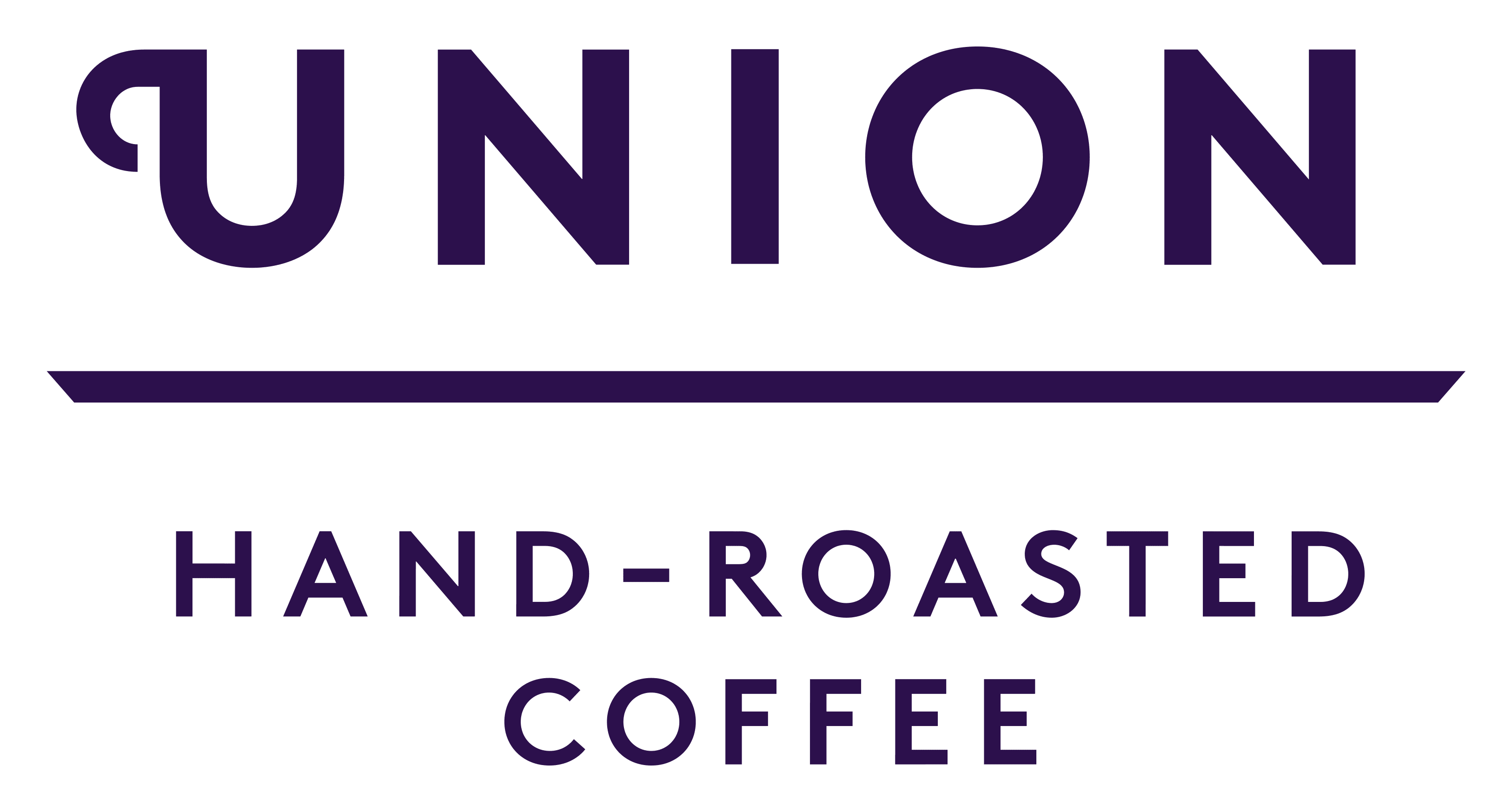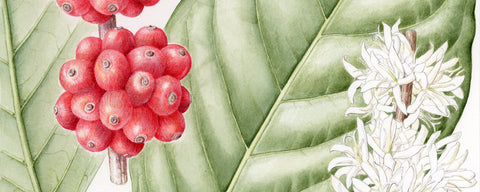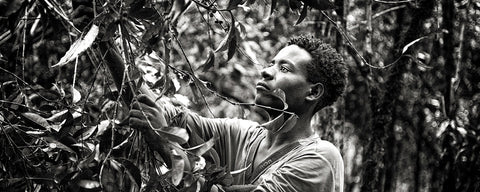First Published - January 24, 2011 (By Steven, Co-Founder, Director of Coffee)
The complexity of sourcing coffee in Ethiopia has always given us an edge of excitement, one mixed with a healthy tinge of anxiety that arises from the fiercely independent spirit of the Ethiopians and their determination to do things in their own ways. From our first visit back in 2002, where it felt like we’d stepped back into the bible, on every subsequent visit the country has held a fascination for us and a desire to get inside their heads to figure out how it works. I realise I’ll probably never achieve that understanding, but during this trip I got to know the country a little better.
As the birthplace of coffee, Ethiopia rightly commands it’s place on the pedestal of specialty coffee, but in the last couple of years the changes created in the mechanism for bringing Ethiopia coffee to the market has changed radically.
Those of you who have followed our adventures in sourcing over the last ten years will know that at Union Hand Roasted, our goal is to find identifiable groups of small farmers who we feel have already some great coffee in cultivation and with whom we can work to tease out the very best of what can be produced in a truly sustainable manner for both the crop and community. In Ethiopia (as with many areas we source from), the coffee is grown in small garden plots and the community cooperatives rely on large numbers of farmer members often over a relatively wide geographical area, altitude and terrain. This structure allows us to target resources on those micro-areas where not only a great quality coffee (clean cup, natural sweetness and balance) can be produced, but also ones with distinct character and regional flavour profiles that we enjoy as diversity of style (think French wine – big full bodied Burgundy or light floral Beaujolais from the south). Two coffees may be assessed in cupping to have top quality scores yet still exhibit dramatically different flavour profiles – our approach is to find systems where each of these special lots can be kept separate and traceable (se we know who produces it and who receives special premium payments) and bring these direct to you for unadulterated enjoyment.
The recent creation of the Ethiopia Commodity Exchange (ECM), where specific lots of particular quality (but not necessarily flavour profile) are sold to licenced exporters only permits the sale of coffee of a specific designated grade and quality, and does NOT permit isolation of traceable lots. Some exporters have devised ways around this restriction, to give a level of provenance but this is not easy to verify. The process for the Commodity Exchange requires farmers to deliver their coffee cherries to designated Exchange Warehouses, which are out in the rural areas. Here producers are paid the current market price for their coffee. The cherries are then processed through to exportable grade but there is no segregation or separation to produce traceable lots. Equivalent grades from all farmers are mixed to create consistency and homogeneity, but with no recognition or reward to individual farmers for truly exceptional lots. This coffee is sold through the Commodity Exchange (ECX). Coffee not deemed of sufficient quality to achieve export status is destined for the local market. Indeed, it is not legal to sell export quality for local consumption; it has to be exported to bring maximum revenue to Ethiopia.
The Direct Specialty Exchange (DSM) introduced last year allowed buyers- roasters and importers- the shortest route to gain access to selected Q Graded lots of highest quality Ethiopia certified (organic and or Fairtrade) coffees. At the inaugural auction back in February 2010, we were able to acquire four different lots all produced from the Yirga Cheffe Farmers Cooperative Union (YCFCU). The Union is a regional organisation that represents and is owned by the cooperatives, and it is the Union that has the licence and capability to export the coffee produced at co-operative level for example the individual co-operatives like, Konga, Haforsa, Koke, and Sigigia- the coffees we bought.
Our relationship with YCFCU goes back to our first visit in 2002, and we’ve been buying their coffee every year, but for a short blip. For a period of time, YCFC experienced numerous challenges around management and governance issues, and the result was a turbulent relationship between the farmer members and their board of directors with the consequence that support for the group and participation was greatly reduced. Unfortunately, this is nothing new in the complex world of coffee, particularly when dealing with so many farmers- each co-operative can have up around 2000 farmers each working 0.5 ha of land.
Conflict within cooperatives often occurs when there is lack of transparency. Farmers forget or just fail to appreciate that they own their Union, and a long process of education is all too often necessary give them the skills and confidence just to ask for, or get access to the information that belongs to them.
Ensuring there is transparent two–way transfer of information is therefore critical to a strong Union and this had been missing from the equation. However, the impact that Takele, the new General Manager of YCFCU has had on their performance cannot be overstated. It was encouraging to observe his strong leadership skills distilled to confidence at farm level. In addition, our visits and continuing relationship with the group demonstrated the support of a committed buyer and has helped to provide the ‘light at the end of the tunnel’ for the producers. The second payment (distribution of the cooperative’s profits fund) given to farmers from last season signalled a new re-energised level of activity at Konga and has attracted an increase in membership this year. We are delighted to see that they are back on track. The board of directors of a Union has to be accountable to their farmers at the level of the primary cooperative. What was now apparent to me at YCFCU office was how the farmers have direct access to what the YCFC Union does, every day.
Back at the cooperative level, in the office of Konga co-operative, it was enriching to see the activity at their cupping laboratory; they are currently the only farmer group within YCFU that has this facility, and it undoubtedly goes a long way to explaining their high quality. The Secretary of Konga, Sisay Daka told me how aware the cooperative is that the cupping lab is the instrument that enables Konga to improve their quality and to increase the selling price of their coffee. This is their “only income source and the current farmgate price is shining towards a bright future”. Maintaining and crafting the quality at Konga is enabled by the activity of the cupping lab which gives direct feedback to the manager of the pulping station, advising when protocols have been effective or in the event of problems, they are immediately detected and can rectified before they adversely impact quality and therefore price received.
In addition to the quality of this coffee, the second strength is the traceability through to each primary producer group. They and I consider this the strength of the certification system, whether Fairtrade or Organic – both reveal the producer cooperative and gives visibility and hence added value to the producer. It reinforces my schizophrenic approach on the benefit or demonization of Fairtrade.
After my visit to Konga, I travelled on to another group in the YCFU, Dama Cooperative who we are just about to begin a relationship with, and from whom I received a massively hospitable welcome. I wanted to visit this particular group because aside from having cupped some amazing coffee from them this year, they are new recipients of a training grant to develop their governance and management skills. This programme is funded by Progreso Network, an NGO who is providing vital pre-financing* for our coffee from YCFCU this season. At Dama I saw the preparation of some special natural processcoffees that we are seeking. This was a special 2010-11 preparation that commenced with advising a democratically selected group of farmers to deliver perfect red ripe coffee cherries to the pulping station. These whole coffee cherries are carefully dried on shallow square wooden trays for up to 21 days as they gradually darken and dry out to resemble dried a dried black cranberry (or real cherry). This process intensifies the sweet, syrupy pulpiness and makes this preparation so distinctive and irresistible.
This lot, along with our new season harvest of Konga Cooperative and a few other interesting Ethiopian coffees will be arriving at our Roastery in the next few weeks and it’s your chance (amongst our other origin micro-lot offers!) to get to really understand how much magic and diversity can be contributed by different micro-climates and the diligence of small committed farmers .
*Pre-financing refers to a buyer providing the cooperative with working capital with which they can fund the purchase of coffee from individual farmers during the harvest season. In the absence of this, cooperatives have to secure commercial loans at high local interest rates which are repayed some months later when all the coffee has been collected, processed and sold. Union Hand Roasted’s participation in this pre-finance has enabled us to build deep relationships with many communities and has been largely responsible for the consistent cup quality we are able to provide through the year.


